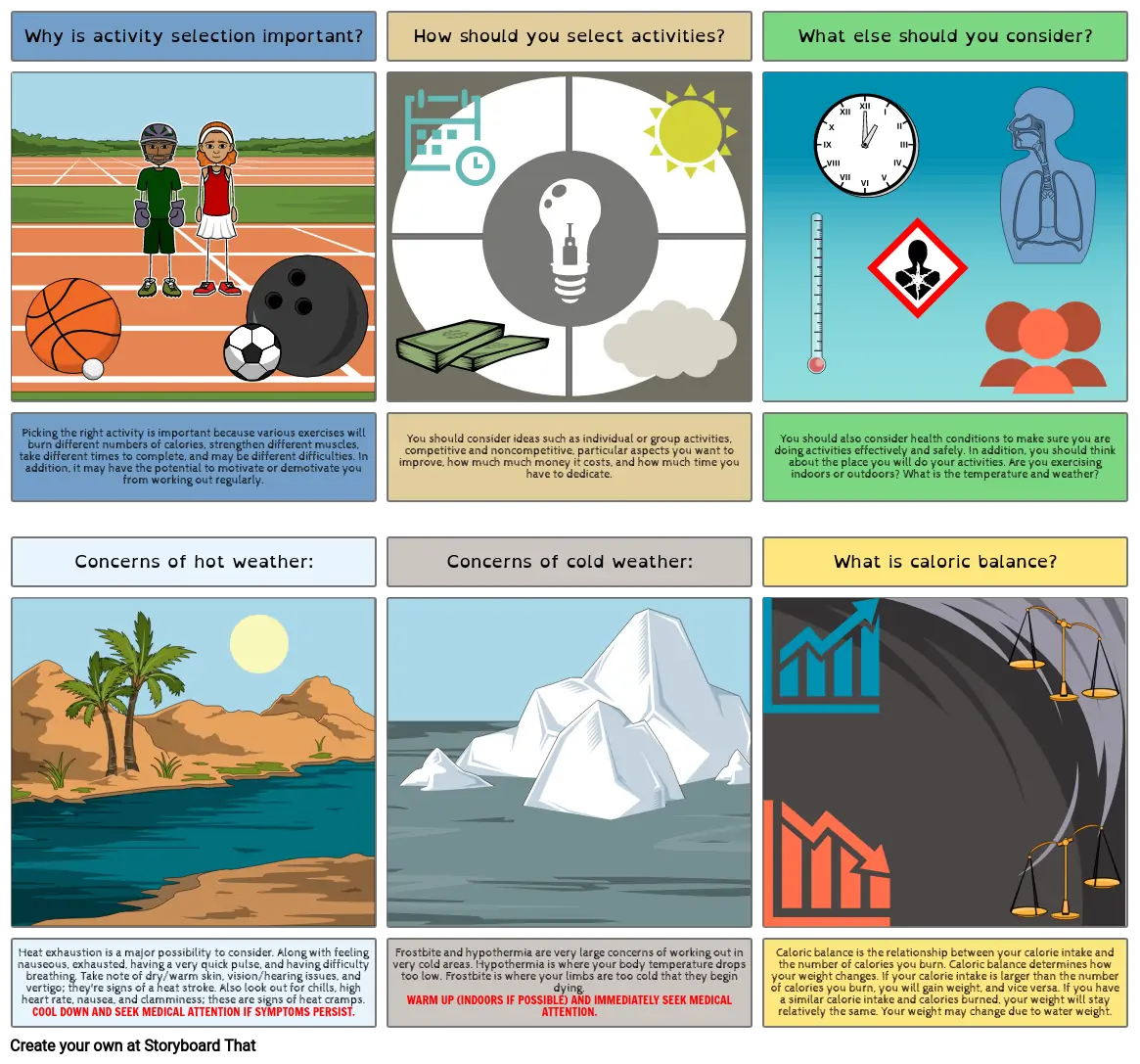Module 4: Selecting Physical Activities

Süžeeskeem Tekst
- Why is activity selection important?
- How should you select activities?
- What else should you consider?
- Picking the right activity is important because various exercises will burn different numbers of calories, strengthen different muscles, take different times to complete, and may be different difficulties. In addition, it may have the potential to motivate or demotivate you from working out regularly.
- Concerns of hot weather:
- You should consider ideas such as individual or group activities, competitive and noncompetitive, particular aspects you want to improve, how much much money it costs, and how much time you have to dedicate.
- Concerns of cold weather:
- You should also consider health conditions to make sure you are doing activities effectively and safely. In addition, you should think about the place you will do your activities. Are you exercising indoors or outdoors? What is the temperature and weather?
- What is caloric balance?
- Heat exhaustion is a major possibility to consider. Along with feeling nauseous, exhausted, having a very quick pulse, and having difficulty breathing. Take note of dry/warm skin, vision/hearing issues, and vertigo; they're signs of a heat stroke. Also look out for chills, high heart rate, nausea, and clamminess; these are signs of heat cramps. COOL DOWN AND SEEK MEDICAL ATTENTION IF SYMPTOMS PERSIST.
- Frostbite and hypothermia are very large concerns of working out in very cold areas. Hypothermia is where your body temperature drops too low. Frostbite is where your limbs are too cold that they begin dying. WARM UP (INDOORS IF POSSIBLE) AND IMMEDIATELY SEEK MEDICAL ATTENTION.
- Caloric balance is the relationship between your calorie intake and the number of calories you burn. Caloric balance determines how your weight changes. If your calorie intake is larger than the number of calories you burn, you will gain weight, and vice versa. If you have a similar calorie intake and calories burned, your weight will stay relatively the same. Your weight may change due to water weight.
Loodud üle 30 miljoni süžeeskeemi

